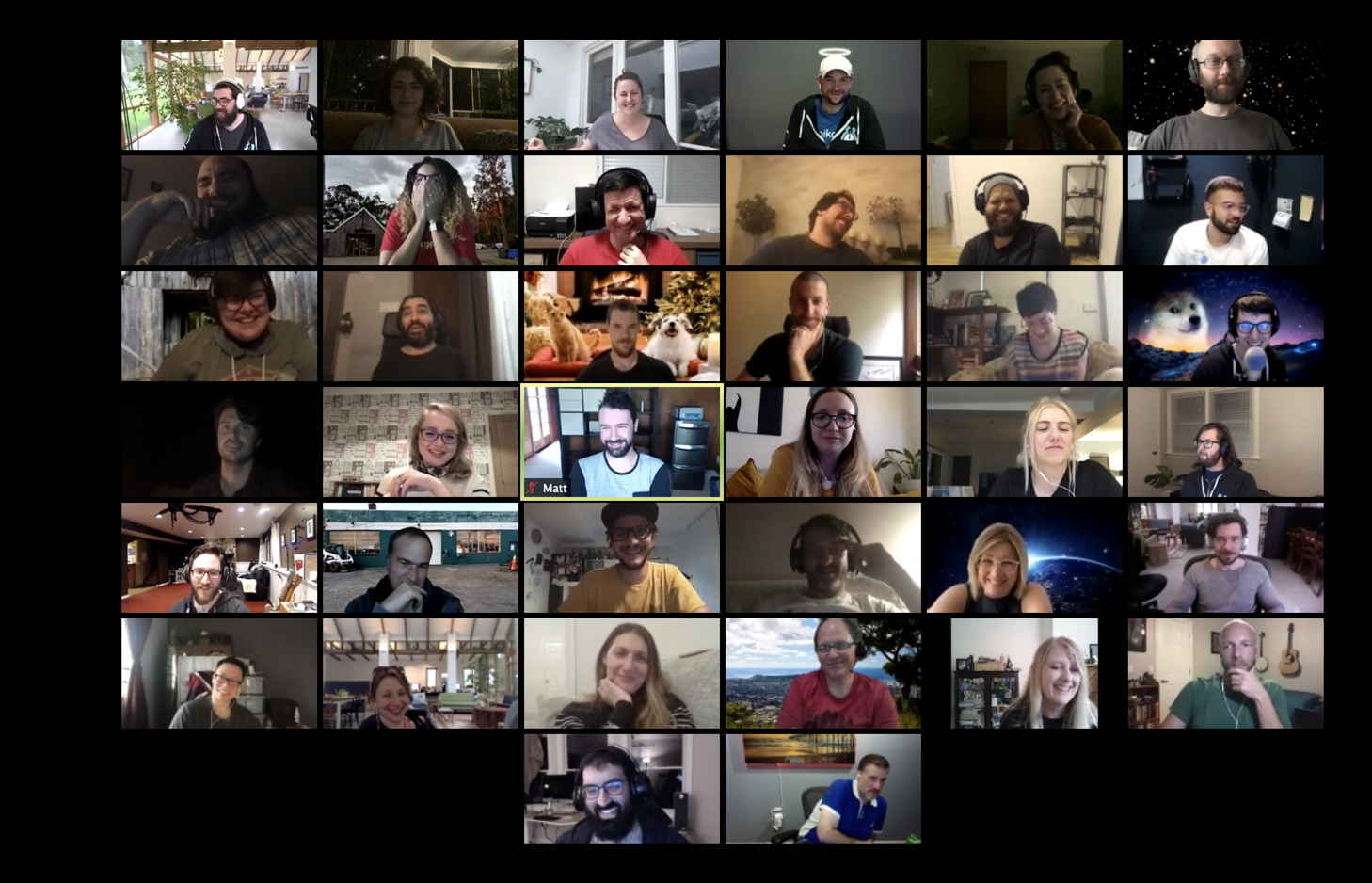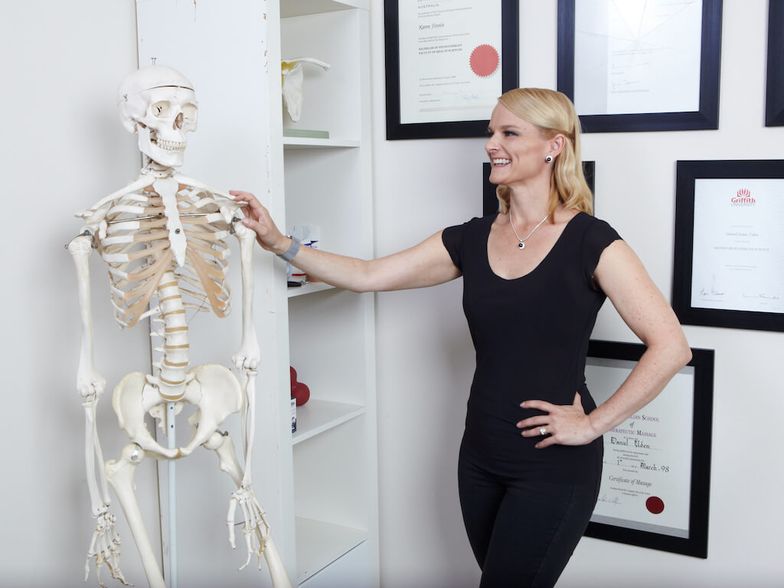These are unique times
We've been a fully remote company for almost 10 years now, everyone works from home. Over this time, we’ve adapted and learned a lot, and we want to share our experience. We’re also very aware that these are unique times. This isn't just working from home; this is working from home during COVID-19. Anxiety levels are up, and people are worrying about their families and their future more than ever. Working from home already requires a different mindset, and our current world events complicate that even further.
Above anything else, right now you need to care for your team. Of course, work can't grind to a halt, but I believe that you can provide the support and flexibility your team needs, while being even more productive than in an office. It's going to require that you question your existing assumptions, and rethink how you work.
It won't work without trust
If you come into this thinking your team is just going to mess around and not get anything done, you're very likely to make it a self-fulfilling prophecy. You'll try to track and monitor them. You are training them to work while you're watching, and that's what they'll do.
People want to do good work. They don't enjoy a day when they get nothing done. They're not satisfied watching the clock waiting for the day to end. Those aren't their best days. A day when they tackle a hard problem and solve it or do something that really helps others, that's what makes their day rewarding. That’s when they go home and want to tell others what they’ve been up to. People naturally want this, but we drill it out of them. We take away the big picture, so they don't know why they're doing something. Instead, it's an allocated task from their manager with a due date. Hardly inspiring.
Your team needs to know why they're doing what they are doing. Why should they care about it? Why does their work matter? Who is affected by it? Give them the context so they can make decisions and take an active role in the quality of their work. When people want to do their work—and want to do it well—you won't need to watch over their shoulder. Instead, you need to remove obstacles and provide support.
The hours don’t matter
Imagine for a moment, a workplace where the only thing that matters is getting the work done, and getting it done well. It does not matter how many hours it takes, when you work, or even where. Imagine that as long as you achieve great results, the rest doesn’t matter.
Then, someone comes to you and says:
“Hey, I know you’re doing a great job, getting all your work done, and the quality of work is exceptional. But here’s the thing… it’s more important that you start coming to our office to do it. On top of that, we’re going to need you to be there by 9am sharp, 5 days a week. You can’t leave before 5:30pm, and you get a maximum of 1 hour for lunch. But don’t worry, if you’re not well, you don’t need to come in, as long as you go to a doctor and have them write us a note to confirm you’re not well. You see, we don’t trust you to tell the truth.”
You’d never accept that. But somehow, over time, this industrial-era mentality became the norm. We decided this way of working was fantastic for an assembly line, so ergo, it must also be amazing for all the creative work we’re doing in 2020.
Maybe, with working from home now—when we’re not in the office anyway—it’s time to re-evaluate what really matters. Maybe we can take a step back, and realise the only important thing is the work done, not the hours spent doing it. Not only does this make a lot of sense, but right now, when your team needs extra time for shopping, preparing, and looking after their families, it’s essential. Don’t give them a hard time about going shopping in the middle of the day. Don’t worry if they are starting late or leaving early because of personal needs. If they’re getting the job done, and doing it well, how they do it is no longer important.
Make communication asynchronous
A big advantage of working from home is the reduced interruptions. Interruptions can have a huge cost, especially in creative work. It’s not just the time it takes for the distraction, but it can take a significant amount of time to get back “in the zone” of where you were. Maybe you just need 5 minutes of someone’s time, but then it takes 30 minutes for them to re-focus and be as productive as they were before the interruption. Office life is full of interruptions, it’s too easy to walk over to someone to get a quick answer.
Embrace the benefit of separation. Don’t pick up the phone and call someone on a whim, because you want a quick answer. Use some form of asynchronous communication that allows them to answer you when it suits them. We use Slack primarily for our communications. It’s a chat tool that hosts most of our conversations. Email is fine too—anything that doesn’t force an interruption. For us, we prefer team chat, as there’s more visibility over the conversations for everyone in the company. It’s largely how we avoid meetings. Almost every conversation is available for all to read. You don’t need to be “in the meeting” to get the knowledge created in those discussions.
With asynchronous communication tools, each person can manage their own notification preferences. They can choose to be available or not, depending on what they’re working on and how much focus they need. It’s respectful of each other’s time. Fully embraced, this could be a significant productivity boost.
It’s not just the tools though, you need to make sure you build a culture of not expecting instant answers. Of course there are exceptions when something is urgent, but as a general rule, don’t chastise someone for taking a while to get back to you. Instead, perhaps be pleased that they had a solid period of productive, uninterrupted work.
It won’t be perfect right away
You’ve probably been working on-site with your team for years. You’ve iterated on how to make that work well. You’ve learnt and adapted. All of a sudden, and probably not by choice, you’re thrust into a whole new way of working. And, it really is a whole new way of working. To think you’ll be as good at it on day one as you are with your current working environment is overly optimistic.
You need to be prepared to learn again. You’ll need feedback, and you’ll need to make changes. Working from home is probably going to be a thing for a while now. It’s worth the time and effort to get it right.
I strongly believe that the advantages you get from remote work will mean you can achieve a level of productivity that is greater than you had in the office, despite the current world events. Even if people are stressed, and dare I say it, people are working fewer hours due to personal needs, you should be able to achieve more from remote work. But not today. Not this week. Not next week. It takes time to learn and get better at it, but it’s worth it. I’m nearly 10 years in with remote work. I’m still learning all the time, but I’d never run a company any other way.



